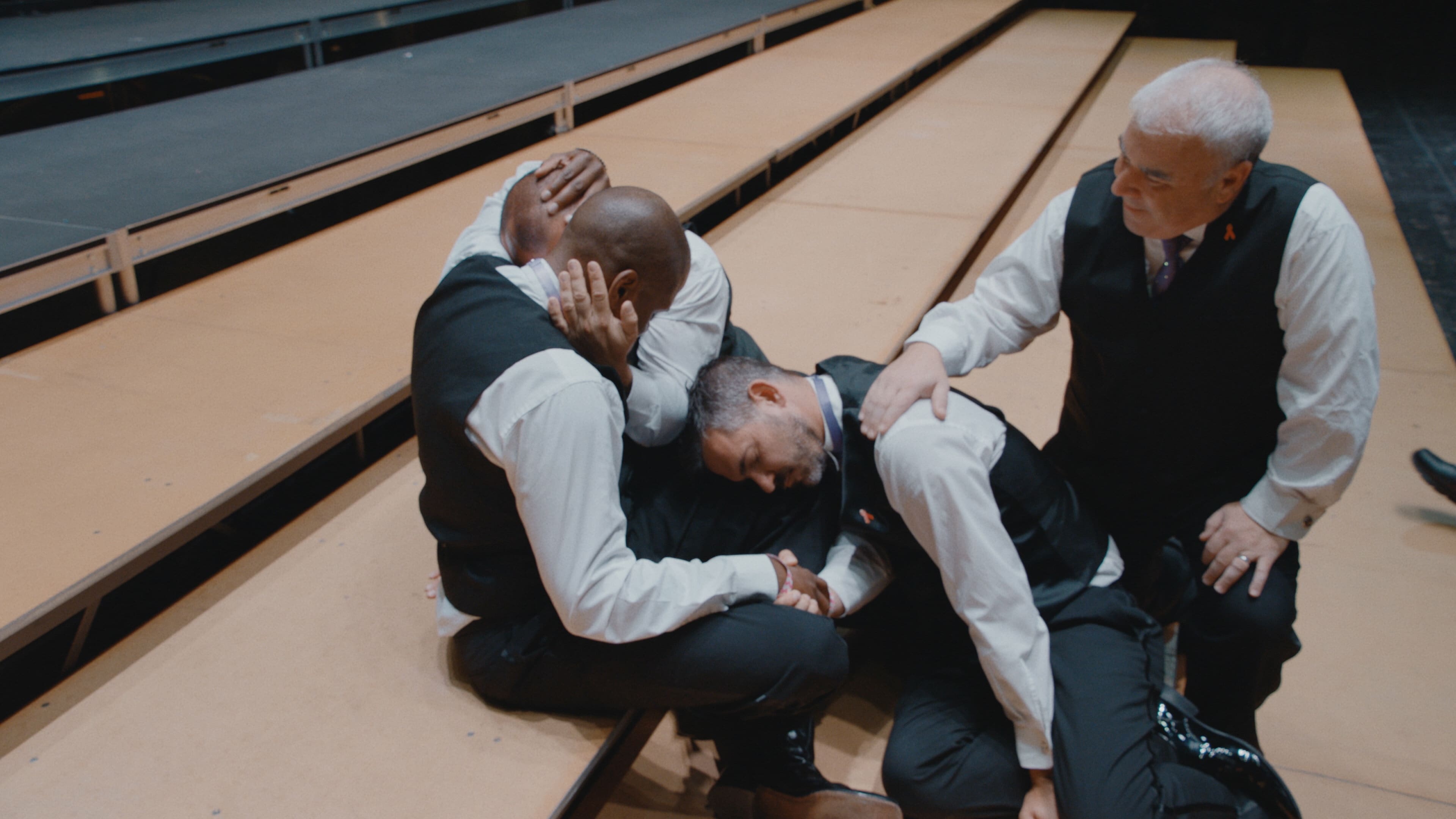
Director David Charles Rodrigues’s new documentary, Gay Chorus Deep South, which premiered at Tribeca this afternoon, tells you everything you need to know about it in the title. Filmed in late 2017, it follows the San Francisco Gay Men’s Chorus on their Lavender Pen Tour. Conceived in response to the divisiveness of the 2016 General Election, the Chorus–accompanied by the Oakland Interfaith Gospel Choir–travel to Mississippi, Tennessee, Alabama and the Carolinas because of anti-LGBTQ+ laws passed there in hopes of spreading a message of acceptance through music. It’s as moving as it sounds.
Though the choir itself hails from the Bay Area, it’s striking to realize how many of its members were actually born in the South. There’s the Mississippi-born Jimmy White, who plans to start chemo after the tour and hopes to use their stop in his home state to reconcile with his father, whom he hasn’t spoken to in eight years. There’s Steve, who Rodrigues interviews in front of his high school, the site of deep trauma the cause of which he doesn’t describe in detail. But most incredible of all is the choir’s conductor and leader, Dr. Tim Seelig, a former Southern Baptist pastor who hasn’t set foot in one of the denomination’s churches in 30 years. We don’t hear all of his story at once, but when we do, it’s understandable why he hasn’t been in a church in so long. After coming out at 35, the church used every legal means to separate him from his then-wife and their two children. Tim never tells us whether he’s seen his children since, but we can tell from the way he talks about that time in his life how fresh the wounds still are. So, when Pastor Jim Dant allows the choir to perform in his own Southern Baptist Church, Seelig scarcely needs to describe why it means so much to him to come back to the fold.
There and elsewhere, it’s incredible to see the way the tour allows the choir members to reconnect to the religious past that once alienated them. However, while watching the various choir members work through their past traumas is one of the film’s most moving aspects, equally gratifying is watching the way they affect lives simply by touring. While one white, presumably cisgendered gay man defensively argues that the tour feels like a condescending attempt to make Southern members of the queer community feel less sad, testimonials from the queer women and people of color who attend the performances suggests that not everyone in the community feels as empowered as he does.
The most noteworthy example is a trio of queer teens. They’re lead by Riley, who is still not out of the closet during filming so Rodrigues and director of photography, Adam Hobbs, film them from oblique angles that mostly keep their face hidden. And yet, despite the risk and having to lie to their unaccepting parents about their whereabouts, Riley attends the choir’s performance to be surrounded by members of their community in a safe space for the first time. It’s frankly beautiful to watch Riley and friends cry during the performance and when they meet one of the choir members after, he says that his fellow singers have a saying that they aspire to be the people they needed to see at 14. Particularly in that moment, it’s hard to deny the good work the choir is doing.
Still, while Gay Chorus Deep South’s goal is ultimately to uplift, it’s hard not to wonder if it’s also not too limited in scope. Conversations about acceptance and approach to discussing marginalized communities have already evolved so much since 2017. Seelig at one point says that one of the tour’s goals is to help individuals to question their perceptions and prejudices and while changing one person at a time helps, it also feels too small a goal. It is easy for one person to understand another’s humanity on a personal level, but the goal now isn’t just tolerance or even acceptance, it’s the understanding that accepting one person means nothing if you don’t also oppose the laws and attitudes that keep that person oppressed.
However, perhaps that’s too much responsibility to place on a single documentary or the choir members Gay Chorus Deep South follows. Perhaps watching these prodigal sons and daughters of the south return home to heal the wounds of their youth is enough. After all, even small miracles are still miracles.

